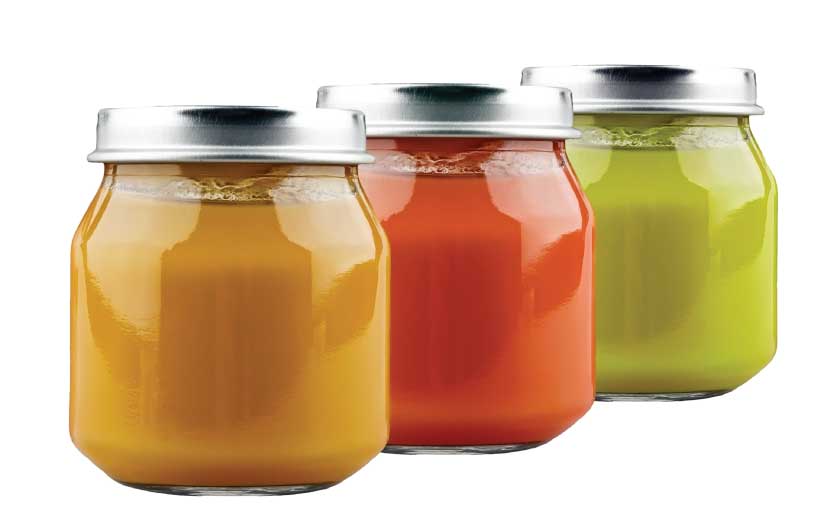Your baby may be ready to try some solid foods around the age of six months. Baby’s first foods usually consist of either simple baby cereals or single-ingredient purees. For mothers who are way too busy to prepare their baby food, knowing what’s out there in terms of choice, quality and ingredients are important, so that they may select the best baby food for their precious baby.
Here are seven important factors to consider.
1. Nutrient content
Checking the label of your chosen baby food will give you a rough idea of what kind of nutrients can be found in the product. It might do us good to remember that a baby’s tiny body does not need as many nutrients as adults or even an older child just yet. The most important role of first-stage baby foods at the early stage is to help the baby familiarize themselves with the taste and texture of solid food so that the little one’s taste buds can slowly adapt to food other than breast milk.
2. Appropriate texture
Babies have very few or no teeth to chew and rely on their gums to ‘handle’ any kind of food that goes into their mouths. Food has to be very smooth and runny for easier swallowing. Choose varieties that are from the first stage group for baby’s first experiences of baby food.
3. Variety of tastes
Depending on the ingredients used, baby foods are available in many flavors and with a large variety of fruits, vegetables, and other ingredients as well.
The different ingredients are all carefully combined and formulated to be acceptable to delicate, developing tummies and provide the right proportions of nutrients too, which, as mentioned earlier, babies, in general, do not need as much of compared to toddlers and older children.
4. Is the food safe?
Baby food manufacturers are, contrary to popular belief, not as conscienceless as they are sometimes made out to be. Commercial baby foods are typically made from produce that requires the least use of pesticide and other chemicals and are hence, decidedly safe for a baby’s consumption. After all, didn’t most of us grow up on commercial baby food anyway?
For parents who are concerned about quality and grade, organic baby food will be a good choice. These are generally more pricey than conventional baby food, but at least, they will put parents’ minds at ease.
5. Convenience
For home use, commercial baby foods are ready to use right out of the containers which makes it super-convenient for mums and caretakers. All one needs to do is to warm it up, although this is not a necessary step.
Store-bought baby food is also easy to carry around in either the sealed jars or pouches they were bought in to be fed to baby anytime, anywhere.
6. Stability of ingredients
All reputable commercial baby foods are guaranteed to contain what is listed on the label and will remain safe for consumption for the stated time. This is where the expiry date of your store-bought baby food comes in — the further away the product is from the expiry date, the fresher it is.
7. Hygiene standards
Manufacturers of baby food are known to observe strict quality control standards. The cleanliness of preparation and cooking areas are constantly monitored, for that is the stage cross-contamination is likely to occur. As for the ingredients used, the storage conditions of the suppliers are also taken into account.
At the factory, every step of production right up to the clean-up procedures after cooking are all closely monitored and checked on to ensure the end product is safe for a baby’s consumption.


